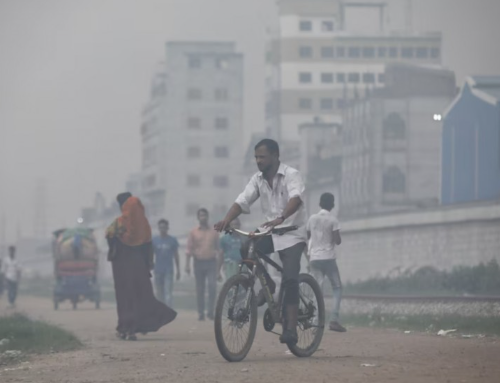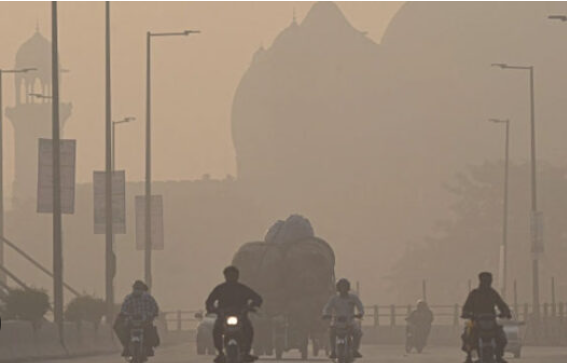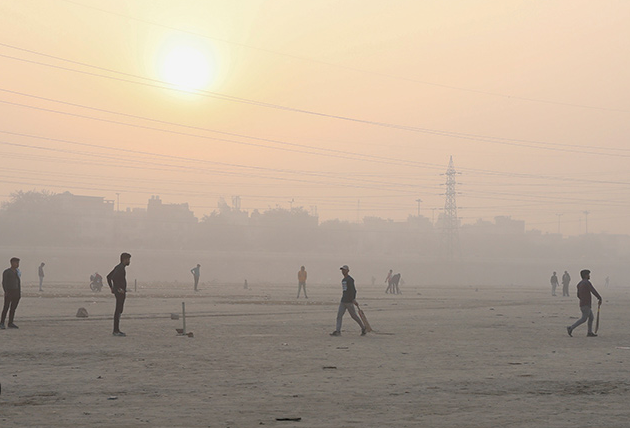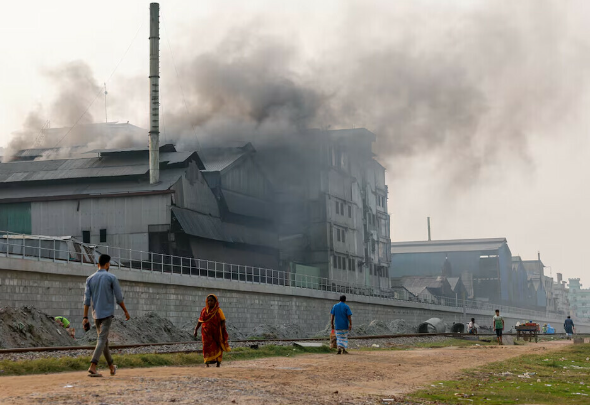Bangladesh, Pakistan, and India Sink to the Depths of Pollution Rankings in 2023
In the global landscape of environmental challenges, few issues are as pressing and pervasive as air pollution. As data from 2023 reveals, Bangladesh, Pakistan, and India find themselves at the bottom of the air quality rankings, grappling with alarming levels of pollution that pose significant threats to public health and the environment.

The latest findings on air quality underscore a sobering reality: despite advancements in technology and environmental awareness, many regions continue to struggle with the detrimental effects of pollution. In Bangladesh, Pakistan, and India, this challenge manifests in particularly alarming ways, with densely populated urban centers bearing the brunt of the pollution burden.
Delving into the intricacies of the data, we uncover a myriad of factors contributing to the air quality crisis in these countries. Rapid industrialization, urbanization, vehicular emissions, and agricultural practices all play a role in exacerbating pollution levels, creating a complex web of environmental challenges that demand urgent attention.
In Bangladesh, a burgeoning population and rapid urban expansion have led to a sharp increase in air pollution levels. Dhaka, the capital city, grapples with some of the highest levels of particulate matter in the world, posing significant risks to public health. From industrial emissions to vehicular traffic, the sources of pollution are manifold, requiring comprehensive measures to mitigate their impact.
Similarly, Pakistan faces daunting challenges in combating air pollution, with cities like Lahore and Karachi ranking among the most polluted in the world. Industrial emissions, vehicular exhaust, and agricultural burning contribute to a toxic mix of pollutants, resulting in hazardous air quality levels that threaten the well-being of millions of people.
In India, home to some of the world’s most populous cities, the air quality crisis has reached alarming levels. Delhi, the capital, regularly grapples with severe air pollution, particularly during the winter months when crop burning in neighboring states exacerbates the problem. Despite efforts to address the issue through measures such as vehicle emissions standards and air quality monitoring, progress has been slow, and millions continue to suffer the consequences of poor air quality.
The ramifications of air pollution extend far beyond public health, impacting ecosystems, economies, and quality of life. From respiratory illnesses to reduced agricultural yields, the toll of pollution is immense, exacting a heavy price on societies already grappling with myriad challenges.
Yet, amidst the gloom and despair, there is hope. The air quality crisis presents an opportunity for collective action and transformative change. From policy interventions to technological innovations, there are myriad avenues through which countries can address the root causes of pollution and chart a path towards cleaner, healthier futures.
In Bangladesh, initiatives aimed at improving public transportation, promoting renewable energy, and regulating industrial emissions offer promising avenues for progress. By investing in sustainable development and embracing cleaner technologies, Bangladesh can mitigate the impacts of pollution while fostering economic growth and prosperity.
Pakistan, too, has made strides in tackling air pollution, with efforts to curb vehicular emissions, promote clean energy, and plant trees to combat deforestation. By prioritizing environmental sustainability and integrating pollution control measures into broader development strategies, Pakistan can pave the way for a greener, more resilient future.
In India, initiatives such as the National Clean Air Programme and efforts to promote electric vehicles offer glimmers of hope in the fight against pollution. By strengthening regulatory frameworks, investing in green infrastructure, and empowering communities to participate in environmental conservation efforts, India can chart a course towards cleaner air and healthier communities.
Ultimately, addressing the air quality crisis requires concerted action at the local, national, and global levels. From policymakers and industry leaders to civil society organizations and individual citizens, everyone has a role to play in safeguarding the air we breathe and protecting the planet for future generations.
In conclusion, the air quality crisis facing Bangladesh, Pakistan, and India demands urgent attention and decisive action. By confronting the root causes of pollution, embracing sustainable development practices, and fostering collaboration across sectors and borders, these countries can overcome the challenges posed by poor air quality and pave the way for a cleaner, healthier future.
Stay up to date with every latest news-click here



